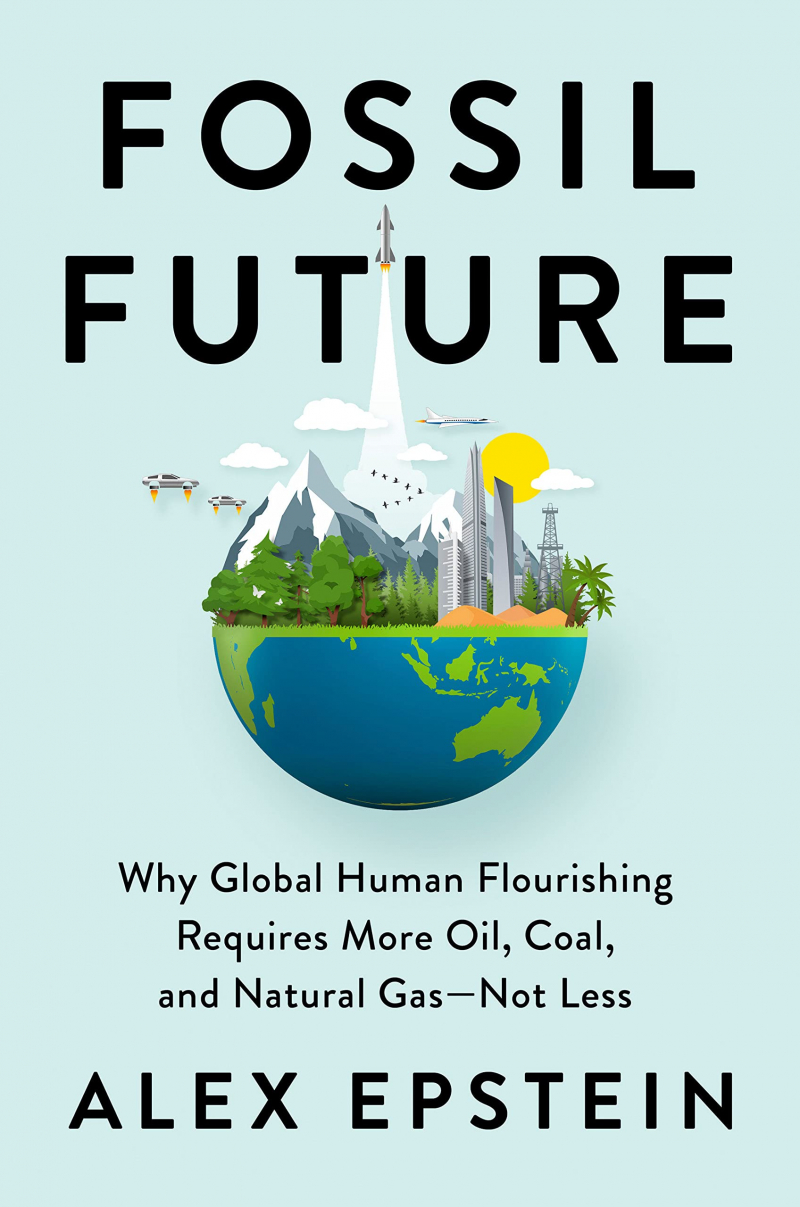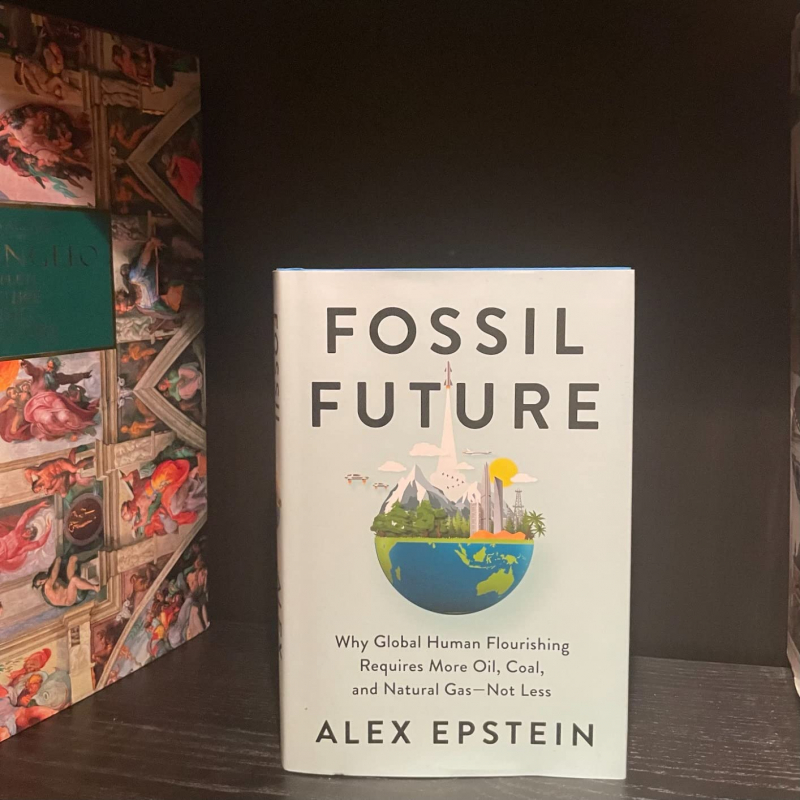Fossil Future

Alex Epstein is an energy expert and the creator of the Center for Industrial Progress, an alternative to the green movement that is positive and pro-human. His New York Times bestseller book, The Moral Case for Fossil Fuels, has been generally acclaimed as the most compelling argument yet presented for our continued use of fossil fuels, earning Epstein The McLaughlin Group's "Most Original Thinker of 2014" award.
For more than a decade, philosopher and energy expert Alex Epstein has predicted that any negative effects of fossil fuel use on our climate will be outweighed by the unique benefits of fossil fuels to human flourishing, including their unparalleled ability to provide low-cost, reliable energy to billions of people worldwide, particularly the world's poorest people.
And, contrary to what we hear from "experts" in the media about today's "renewable revolution" and "climate emergency," reality has proven Epstein correct:
- Fact: Fossil fuels remain the world's major source of energy and are rising rapidly, while much-touted renewables are generating skyrocketing electricity bills and increased blackouts.
- Fact: Fossil-fueled industrialization has reduced global poverty to historic lows.
- Fact: While fossil fuels have contributed to 1 degree of warming over the last 170 years, climate-related mortality have reached an all-time low as a result of fossil-fueled development.
What will the future bring? In Fossil Future, Epstein applies his distinctive "human flourishing paradigm" to the most recent research to reach the startling conclusion that the benefits of fossil fuels will continue to outweigh their drawbacks, including climatic implications, for future generations. Epstein contends that the route to global human flourishing is a combination of burning more fossil fuels, improving "climate mastery," and developing "energy freedom" laws that allow nuclear and other truly promising alternatives to fulfill their full long-term potential.
As mentioned, fossil fuels remain the world's primary source of energy and are rapidly increasing. The compounds in fossil fuels only react when they come into contact with other heat sources. When exposed to heat, the hydrocarbon chain turns the heat energy contained in the fossil fuel to electrical energy, which is then converted to mechanical energy and used to power the engines. When the hydrocarbons in the fossil fuel are burned, they produce energy. The heat used to burn fossil fuels causes carbon and hydrogen molecules to react, producing a tremendous amount of energy. People employ the creation of this new energy for a variety of objectives. For example, when you put gas in your automobile, the engine burns the gasoline and transfers the energy created by the combustion of fossil fuel to mechanical energy, resulting in the vehicle moving forward. When fossil fuels are burned, carbon and hydrogen molecules react, producing a large amount of energy and heat. People burned a lot of coal and used the heat it created to power generators, which produced electricity.
Fossil Future will make you rethink everything you thought you knew about the future of our energy use, environment, and climate. It is thoroughly researched and wide-ranging.
Author: Alex Epstein
Link to buy: https://www.amazon.com/Fossil-Future-Flourishing-Requires-Gas-Not/dp/0593420411/
Ratings: 4.6 out of 5 stars (from 282 reviews)
Best Sellers Rank: #1,750 in Books
#1 in Coal Energy
#1 in Energy Policy (Books)
#1 in Oil & Energy Industry (Books)
















